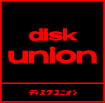- おすすめキーワード
-

AKALE WUBE
AKALE WUBE
- レコード
- 売切
- (注文不可)
1,885円(税込)
※5,000円(税込)以上買うと送料無料!新品でも中古品でもOK!
- レーベル
- L'AROME
- 国(Country)
- FRA
- フォーマット
- LP(レコード)
- 規格番号
- LAP013LP
- 通販番号
- AFR10508
- 発売日
- 2011年05月31日
- EAN
- 2110206000003
商品詳細情報
2008年に結成し、パリを拠点に活躍する、本格派エチオ・ジャズ・アップデート集団「AKALE WUBE」。リリース当時話題となった2010年オリジナルのデビュー・アルバムがCDで再発。Mulatu Astatqé、Téshomé Sissay、Alèmayehu Eshetéほか、エチオジャズの聖典的名手のカバーも素晴らしい。
CDリリース
http://diskunion.net/latin/ct/detail/WOR25196
Akalé Wubé transforms an ethiopian sound into a retro-futuristic soundtrack which makes you dance from head to toe.
It is an improbable story: one that reunites, a group of young Parisians with the Swingin' Addis sounds of the seventies. In October 2008, five musicians got together on a wild project: to delve into the repertoire of the ethiopian golden age, as defined by the producer Francis Falceto, to whom we owe the series of reissues “Ethiopiques”. “The idea was to transcribe songs from this period and rearrange them to the sound of our times. First off, it eliminated the need to write songs that risked falling into ethio- jazz clichés. The aim was not to bring about some artistic revolution through our work but simply to give and take pleasure by performing this music!” Through this retro-futuristic alchemy, the Akalé Wubé quintet was born: a curious name borrowed from a song by the great saxophonist Getatchew Mekurya, a bit of an old-fashioned expression which can by translated as “my beautiful” in Amharic, a poetic metaphor which also means “beauty of the soul”.
Body and soul! The Great Black Music currency can be found here, reinvented at every second. Take for example Mulatu Astatqé’s classics, the master of ethio-jazz, songs like “Mètché New” by Téshomé Sissay, or even some other lesser known rarities...Akalé Wubé delivers an original vision which transfigures the original version. “One of the challenges was to play the songs without a singer.” The vocal parts are thus interpreted by the flute, starting with the bansuri on “Ayalqem Tèdèngo”: the opening tune by Alèmayehu Esheté, the godfather of local funk, which uncorks the
album. The group takes on another challenge by glorifying a song from
the Eritrean repertoire called “Bazay”. It couples swing and straight eighths to develop a dance-floor tune full of breaks and counterpoint. Finally, the ultimate challenge was to integrate four of their original compositions into this journey, guided by the good sense of groove. “Nebyat”, a juicy ballad stained with psychedelic jazz, evolves through a post-rock direction, while “Jawa Jawa” (meaning “to sway, to swing” in Amharic) is a prototype of funk soul jazz breakbeats, agile percussion and subtle keyboards, brass playing in unison and a guitar riff in the tradition of The Meters. “Kokob” is based on a slightly broken up reggae riddim.
This track contains a sample of Hailé Sélassié’s historic speech at the United Nations in 1963, the same one used by Bob Marley in his emblematic “War”. Last but not least, the minimalistic “Ragalé”: some light melodica touches, brushes barely grazed by the drummer and the deep blow of the tenor sax close this chapter by opening some new horizons.
ソングリスト
Disc A
- 1. Jawa Jawa
- 2. Kokob / Metche Dershe
- 3. Netasane
- 4. Gubelye
Disc B
- 1. Nebyat
- 2. Ayalqem Tedenqo
- 3. Yekatit
- 4. Metche New
AKALE WUBE / アカレ・ウーベ












